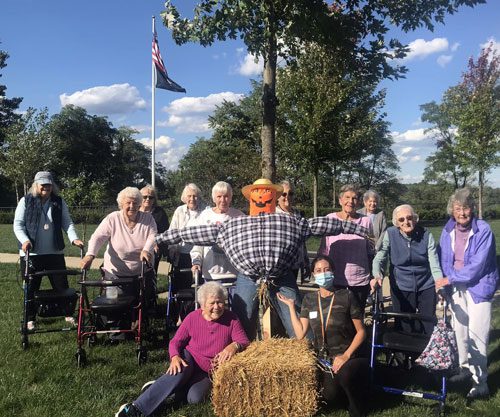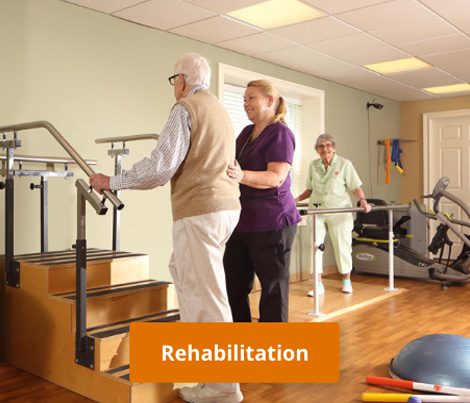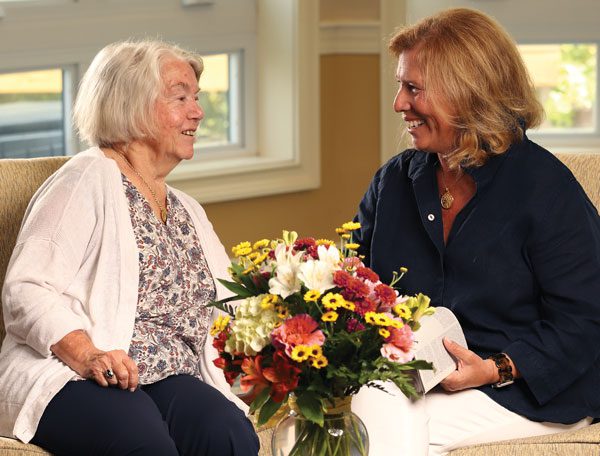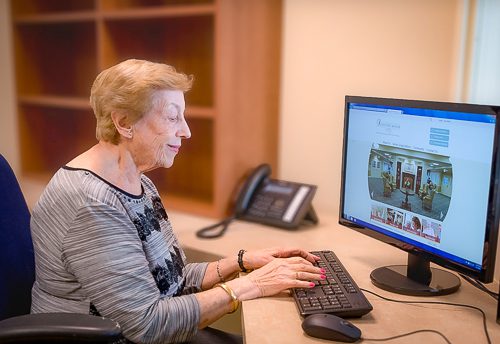How to Help Seniors Adjust to the Time Change

Ready to “fall back?” Learn more about adjusting to the end of Daylight Savings Time, plus seven simple tips to make the time change easier.
 As the end of Daylight Savings Time approaches this autumn, are you looking forward to an extra hour of sleep? Or will you miss the lighter evenings? Whether you prefer the “fall back” or the “spring forward,” it is normal to be little out of sorts after the clocks change.
As the end of Daylight Savings Time approaches this autumn, are you looking forward to an extra hour of sleep? Or will you miss the lighter evenings? Whether you prefer the “fall back” or the “spring forward,” it is normal to be little out of sorts after the clocks change.
For seniors, the adjustment can be a bit more challenging. Sleep patterns naturally change with age and changes to daily sleep habits can feel more disruptive. Fortunately, there are a few simple steps seniors and caregivers can take to help ease the transition back to standard time.
Changing the Clock Changes Your Body
Resetting the clocks resets your circadian rhythms, too. Circadian rhythms are physical, mental, and behavioral patterns that are based primarily on light and dark throughout the day. Circadian rhythms follow a twenty-four hour clock and tell your body what time to sleep, awaken, and eat. So, when you add an hour to the clock, you may feel “off” for up to a week as your body adjusts.
That “off” feeling can be more noticeable for seniors, especially those who have trouble sleeping and those who are experiencing dementia. Fortunately, practicing good sleep hygiene and following a few practical guidelines can help.
How to Adjust to the Time Change
Whether you’re a night owl or an early bird, the steps to adjusting to the end of daylight savings time are the same. Following are seven tips to help seniors and caregivers rest easy when the clocks change.
- Fall back on Saturday night. Set your clocks back before you go to bed. You’ll be cued to the correct time as soon as you wake up on Sunday morning.
- Take it slow. If you have an especially tough time with clock changes, try gradually adjusting your daily schedule by 10-15 minutes each day for 3-5 days leading up to changing the clocks. This is especially helpful for caregivers looking after loved ones with dementia whose symptoms tend to worsen when their routine is disrupted.
- Be consistent. Keep a consistent bedtime routine before and after the clock changes.
- Turn off screens. Step away from screens (television, computers, phones, and tablets) at least 30 minutes before bedtime. This is always helpful in improving sleep quality, but it’s especially important when routines get disrupted by the clock changing.
- Reduce caffeine and alcohol. There is no need to cut out your favorite beverages entirely, but being mindful about consumption helps! Reduce caffeine in the late afternoon and evening, and reduce alcohol consumption close to bedtime.
- Sit in the sun. Get plenty of daylight, especially early in the morning. This helps tell your body when it’s time to be awake and keep you energized throughout the day.
- Get moving. Enjoy light exercise and fitness. Exercise has been shown to help with sleep quality and duration.
Remember, these same tips can help when the clocks “spring forward,” too. And, good sleep hygiene, like turning off screens, is helpful all year long. While the time change can be an inconvenience, when you’re prepared you can rest easy!
Learn More About Why Families Rely On Sunnyside Manor
When you have questions about senior living, we are here to help. Sunnyside Manor offers assisted living, memory care, and skilled nursing and rehabilitation. Learn more about Sunnyside Manor’s resources for caregivers. Whether you’re looking for short-term support or a longer-term plan, begin with our “Getting Started” guide. Please call us at 888-696-2052 to speak with a senior living expert.
Sunnyside Manor, located in Wall NJ, is the area’s premier senior living community. The community features three distinctive neighborhoods: Independence ‘Plus’ Assisted Living, Recollections Memory Care, and Skilled Nursing and Rehabilitation.








